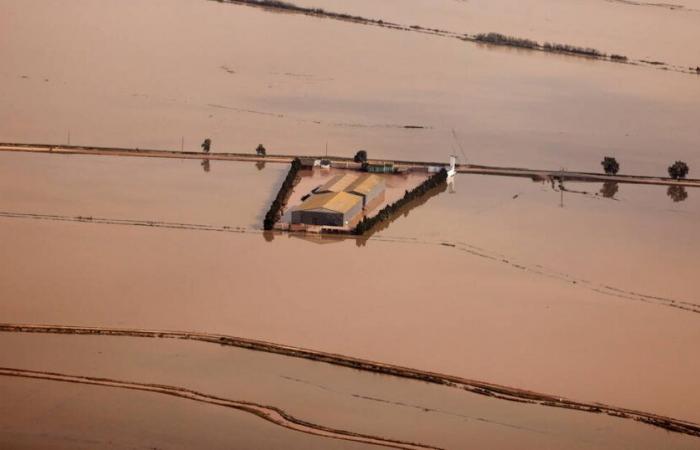A first analysis by the World Weather Attribution consortium of experts estimates this Thursday, October 31, that the global rise in temperatures has increased by around 12% the intensity of the historic precipitation that fell in a few hours in Spain on Wednesday.
Unsurprisingly, the torrential rains which fell on the south-east of Spain on the night of Tuesday to Wednesday October 30, killing at least 158 people in catastrophic floods, were reinforced by climate change. Indeed, a quick analysis from the World Weather Attribution, a consortium of experts on extreme weather events, estimates that “The heavy rainfall that hit southern Spain was around 12% heavier and made twice as likely” by the global rise in temperatures. In fact, precipitation reached 500 mm in the Valencia region, the normal annual total in this region.
This paper is not a complete, detailed attribution study because scientists did not simulate the event in a world without human-caused warming. However, experts say climate change has made the intensity of these rains worse because a warmer atmosphere contains more humidity, leading to heavier downpours. And, in the 1.3°C warmer world we live in today than in the pre-industrial era, the atmosphere now contains 9% more humidity.
Overheating of the Atlantic
The NGO Climate Central shares this observation. “The low pressure system causing these historic floods tapped into an atmospheric river [une dépression très active, ndlr] carrying excess moisture from the exceptionally warm tropical Atlantic.write the specialists in their analysis. They say that climate change has made high temperatures in the Atlantic Ocean 50 to 300 times more likely, bringing moisture to the storm that hit Spain.
“As we speak, Typhoon Kong Rey wreaks havoc in Taiwan, barely 24 hours after floods in Spain”recalled Ben Clarke, lecturer at the Environmental Policy Center at Imperial College London and cited by World Weather Attribution. “These successive events show how dangerous climate change already is with just 1.3°C of warming. But if we don’t replace fossil fuels with renewable energy, we will face a future of continued extreme weather.”
Same observation from Friederike Otto, also a lecturer at the Center for Environmental Policy. “The burning of oil, gas and coal is the main reason why the climate has warmed and we are experiencing such extreme weather today.” The specialist calls for the development of renewable energies, such as solar and wind, cheaper than fossil fuels and much more beneficial for human health and the planet. “We also have to adapt. The number of people who have died in the floods in Spain really highlights the critical need to prepare for extreme weather conditions that are worse than anything experienced in the past.he adds.
On October 24, the United Nations warned that measures implemented by the international community were leading the world towards a warming of +3.1°C by the end of the century. Enough to make these episodes of extreme precipitation even more intense and more frequent.






